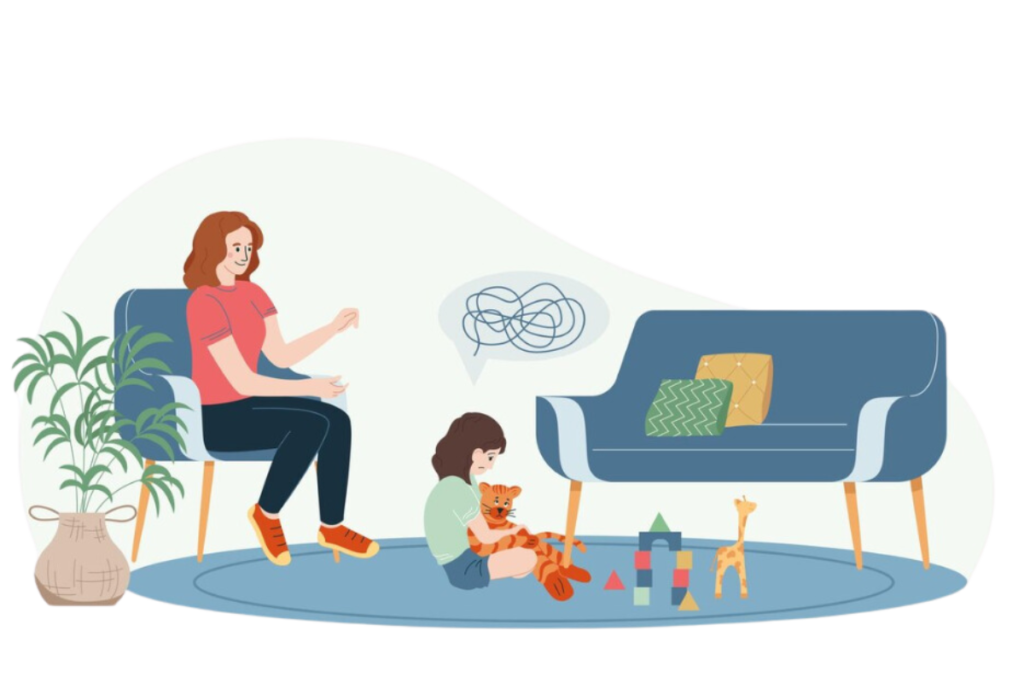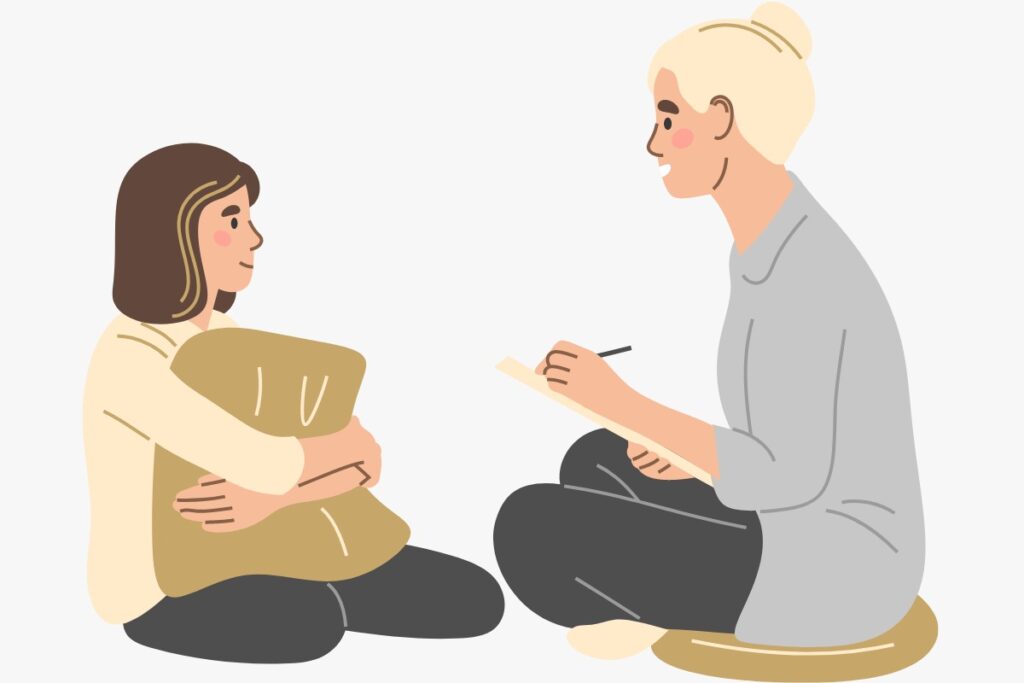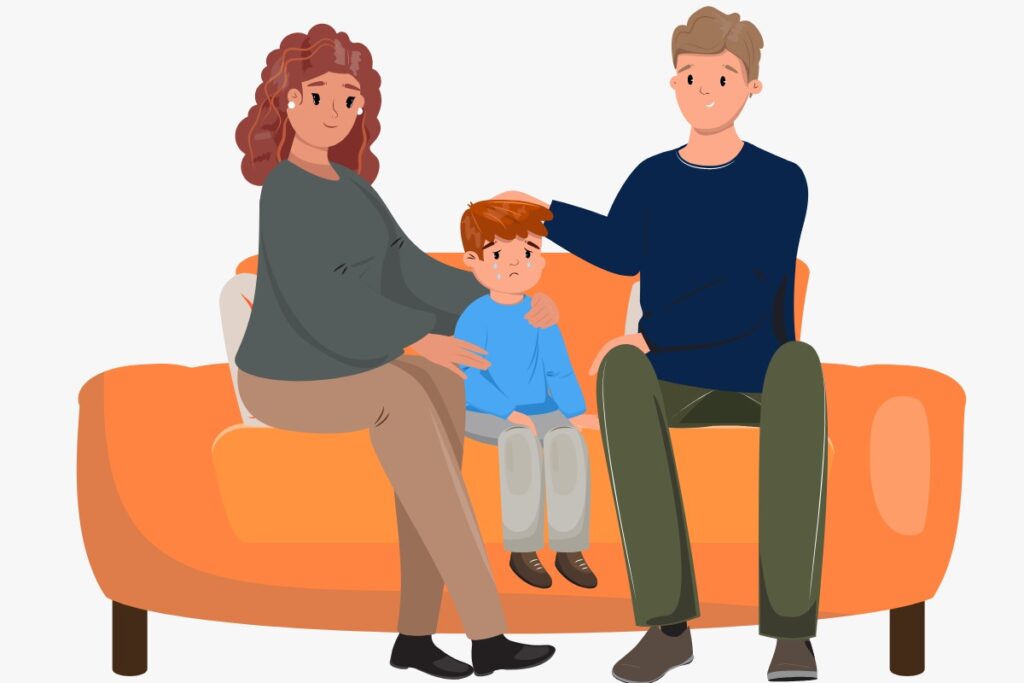Child Psychology Practical Program

Child Psychology
Developmental Stages Focus: Child Psychology Practical Program emphasizes understanding the different stages of a child’s cognitive, emotional, and social development, from infancy through adolescence, and how these stages influence behavior and learning.
Influence of Environment and Genetics: It explores how both environmental factors, such as parenting styles and peer interactions, and genetic predispositions shape a child’s psychological growth and mental health.
Emotional Regulation and Behavior: Child psychologists study how children learn to manage their emotions, develop coping mechanisms, and navigate challenges like anxiety, aggression, or frustration during formative years.
Cognitive and Learning Processes: The field investigates how children acquire knowledge, process information, and develop problem-solving skills, with a focus on how different learning styles and disabilities affect academic performance.


How Does Child Psychology Practical Program Help with People?
Early Intervention for Mental Health: Child psychology helps identify emotional or behavioral issues early in life, enabling timely interventions that can prevent long-term psychological challenges and improve overall mental health.
Strengthening Family Relationships: By understanding a child’s psychological needs and behaviors, parents and caregivers can develop healthier communication and parenting strategies, fostering stronger and more supportive family dynamics.
Promoting Healthy Development: Child psychology guides parents, educators, and professionals in fostering cognitive, emotional, and social development, ensuring that children grow into well-adjusted and resilient adults.
Guidance in Addressing Trauma: It provides tools and techniques for helping children process traumatic experiences, whether from abuse, loss, or other life-changing events, thereby aiding in emotional healing and recovery.
How Does Child Psychology Practical Program Work?
Observation and Assessment: Child psychologists begin by observing the child’s behavior in different settings (home, school, play) and conducting assessments through interviews, questionnaires, and developmental tests to understand the child’s cognitive and emotional state.
Understanding Developmental Milestones: They evaluate the child’s progress against established developmental milestones, such as language skills, motor abilities, and social interactions, to identify any delays or concerns that may require intervention.
Behavioral Analysis: By analyzing patterns in the child’s behavior, emotions, and thoughts, psychologists can uncover underlying issues such as anxiety, ADHD, or autism spectrum disorders, which affect how the child interacts with their environment.

How Child Psychology Practical Program Therapies is different from Other Therapies?
Developmentally Tailored Approaches: Child psychology therapies are specifically designed to match the cognitive and emotional development levels of children, using age-appropriate methods like play therapy or art therapy, which are not typically used with adults.
Non-verbal Communication Focus: Since children may have limited language skills, therapists often rely on non-verbal communication techniques, such as observing play or creative expression, to understand their emotions and psychological state. This differs from adult therapy, which usually focuses on verbal communication.
Involvement of Parents and Caregivers: Child therapy often includes a strong focus on the role of parents or caregivers. Therapists work with families to modify parenting techniques and create a supportive environment for the child’s healing, which is less common in adult therapy.
Play-Based and Interactive Techniques: Unlike traditional talk therapy often used with adults, child therapy frequently involves interactive, hands-on techniques like role-playing, games, or storytelling to help children express feelings and process trauma.
Focus on Early Intervention and Developmental Progress: Child psychology therapies emphasize early identification and intervention to prevent long-term issues, focusing on supporting healthy development. Other therapies often focus more on managing existing conditions rather than preemptive developmental care.
How ICS is Presenting the Child Psychology Practical Program Course?
Comprehensive Curriculum: ICS offers a broad and structured curriculum that covers key areas of child development, including cognitive, emotional, and social growth, equipping students with a holistic understanding of the Child Psychology Practical Program.
Flexible Learning Environment: The course is delivered online, allowing students to learn at their own pace and convenience, making it accessible to both full-time professionals and individuals seeking personal development in the field of child psychology.
Practical Applications: ICS emphasizes the application of theoretical knowledge through real-life case studies, encouraging students to apply psychological principles in everyday situations involving children, such as in educational or caregiving settings.
Expert-Led Instruction: The course is guided by experienced child psychologists and educators who provide in-depth knowledge, practical insights, and mentorship to students, ensuring they learn from seasoned professionals in the field.
Focus on Early Childhood Development: A major emphasis of the course is on early childhood development, helping students understand critical milestones, early behavioral challenges, and effective intervention strategies.
Certificate Upon Completion: Students who complete the course receive a recognized certification from ICS, enhancing their qualifications for roles in education, counseling, social work, or childcare professions.
Interactive Learning Tools: The course incorporates various interactive tools such as online discussions, quizzes, and assignments that foster engagement and ensure students can track their progress and understanding effectively.

What Does it Focus On?
- What is Developmental Psychology?
- Intro to Child Psychology
- What is Life Span and their Age Range?
- Role of Child Psychologist in the Field of Mental Health
- Case History Taking
- Mental Status Examination (MSE)
- Behavior Observation
- Dealing with Clients
- Major Childhood Disorder
Our Child Psychology Course
Holistic Understanding of Child Development: Our course offers a deep dive into the emotional, cognitive, and social development of children, providing students with a comprehensive foundation in understanding how children grow and learn.
Interactive Learning Methods: We emphasize hands-on learning through case studies, role-playing, and real-world scenarios, allowing students to apply psychological concepts to practical situations involving children.
Focus on Early Childhood Intervention: The course highlights the importance of early detection and intervention in developmental and behavioral challenges, equipping students with strategies to support children in critical stages of growth.
Tailored for Aspiring Professionals: Whether you’re pursuing a career in education, counseling, or childcare, our course is designed to meet the needs of those looking to specialize in child psychology and work directly with children.
Expert-Led Instruction with Ongoing Support: Taught by experienced professionals in the field of child psychology, the course includes personalized guidance and access to a wealth of resources to ensure students are well-prepared for real-world applications.
Benefits of the Child Psychology Course
- Study Materials
- Online Resources
- E- Certificate / Hard Copy
- Get Identity Card
- Letter of Recommendation
- Startup Support
- Job Opportunities
Program Overview
- Includes Case Studies
- Group Discussions
- Practical Experiences/Workshop
- Monthly Training Sessions
- Research Work
- Quizzes to Follow your Progress
This Course is Suitable for
- Aspiring/Practicing Counselors
- Certified Therapists
- B.Sc./M.Sc./B.A./M.A./P.HD
- Psychology enthusiasts
- Mental health professionals
- Independent therapists
- Any professional involved in the mental health well-being
- School students, teachers, special educators
Course Duration
- Instructor: Sonali Grover
- Duration: 1.5 Months
- English, Hindi
- Learn under RCI Certified trainer
